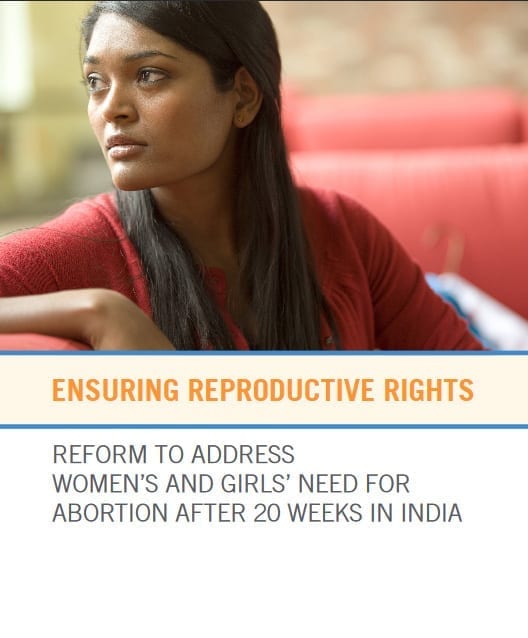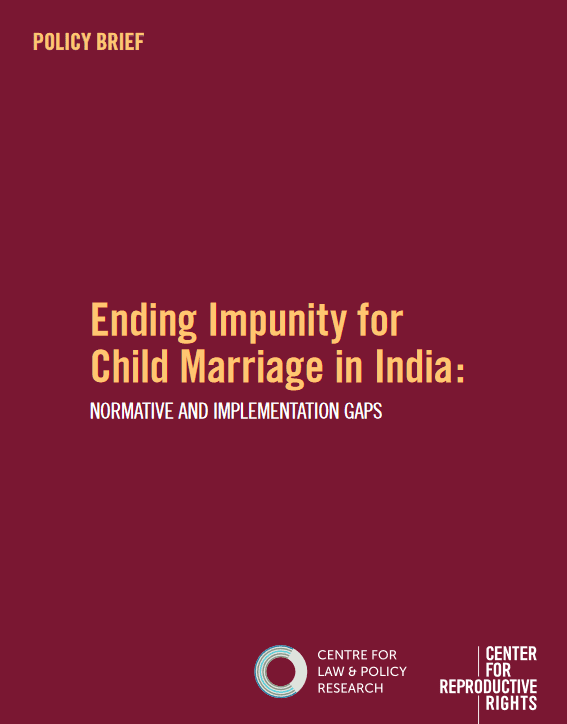Unnecessary Suffering
A new case filing in the Sindh province of Pakistan demands that the government take immediate action to help thousands of women afflicted each year with obstetric fistula.
During what should have been an active, joyful time, young Karachi resident Kiran Sohail was plunged into almost a decade of suffering just days after delivering her first child when she developed the symptoms of a debilitating complication known as obstetric fistula.
Obstetric fistula—most often caused by prolonged, obstructed labor that is not addressed by prompt obstetric care—occurs when a hole opens between the birth canal and the bladder causing the constant, uncontrollable leaking of urine and/or feces. With the proper treatment, the devastating condition can be fully repaired.
But finding that proper treatment became a crushing obstacle for Kiran.
In the months and years that followed her labor, she sought help again and again from doctors in private and government hospitals in Karachi, and was repeatedly told that they were unable to treat her because they did not know how to perform the necessary surgery. Kiran was forced to live with the discomfort, stigma, and shame that commonly affect victims of obstetric fistula.
This summer, the Center for Reproductive Rights teamed up with Pakistani lawyer Sara Malkani to take legal action on behalf of Kiran—and hundreds of women like her—and petitioned the government to respond to allegations that they have failed to prevent the high incidence of obstetric fistula in women in Karachi and elsewhere in Sindh province.
Obstetric fistula unnecessarily afflicts thousands of poor, rural, and marginalized women and girls across Pakistan who face barriers in accessing timely, quality obstetric care. Like Kiran, women are often unable to lead normal lives due to the condition, which can cause severe and sometimes fatal physical consequences—including infections, rashes, boils, and ulcers on women’s vulva and thighs. Affected women can also experience intense isolation and are frequently shunned by their families and communities and abused or abandoned by their husbands.
“Far too many women and adolescent girls in Sindh suffer terribly and unnecessarily because of the government’s failure to implement maternal health programs and ensure proper training for its physicians,” says Melissa Upreti, the Center’s regional director for Asia. “It is well within the government’s power to expand women’s access to care for this devastating but treatable condition, and failing to ensure these services is a violation of women’s basic human rights.”
Upreti notes that in addition to ensuring timely access to emergency obstetric care, ending obstetric fistula will require a holistic approach that includes broad access to contraception, information, and services, as well as the elimination of the devastating practice of child marriage, which often leads to early pregnancy.
Kiran spent eight years seeking a doctor who could perform the surgery—and finally had the fistula repaired at the Koohi Goth Hospital, the only hospital in Karachi that provides fistula treatment for free, in November 2014. She is now fully cured and able to live a normal life. A simple, timely surgery could easily have prevented the years of misery that she endured.
An estimated 1,500 Sindh women suffer obstetric fistulas each year. By contrast, a 2003 study out of UCLA found only two cases of obstetric fistula over a period of 20 years in the United States and Great Britain, where maternity patients have better access to obstetric care and medical professionals trained in the repair surgery.
In addition to holding the Sindh government accountable for violating the fundamental rights to life and dignity under the Pakistan Constitution, Malkani’s petition asks the High Court of Sindh to order the government to ensure affordable access to and information about treatment for obstetric fistula and to guarantee that at least one gynecologist in every district be trained and equipped to provide fistula repair surgery.
One of the primary petitioners in the case, Dr. Shershah Syed, a renowned gynecologist and maternal health advocate in Pakistan, founded Koohi Goth Hospital in 2005 in response to the widespread suffering caused by obstetric fistula in Pakistan. In the last decade, he has treated 10,000 Pakistani women his hospital and outreach camps nationwide, but 5000 new cases emerge annually.
“The dream is very simple – that every woman has a right to basic obstetric care, in case of an emergency, at her doorstep, free of charge.” says Dr. Syed. “This case will help all of us working to enforce the responsibility of the Government of Sindh to provide emergency obstetric care and prevent and treat obstetric fistula.”
The filing against the Sindh government was developed as part of the South Asia Reproductive Justice and Accountability Initiative (SARJAI), a partnership spearheaded by the Center that brings together lawyers in the region to promote the use of legal accountability strategies to address ongoing violations of women’s reproductive rights across South Asia.
While this is the first case in Pakistan to seek recognition of the widespread incidence of obstetric fistula as a violation of women’s fundamental rights to dignity and life, international and regional legal precedents provide a strong basis for the High Court of Sindh to recognize Pakistani women’s right to access to reproductive health care.
The next hearing in the case is scheduled for November 26, 2015.



